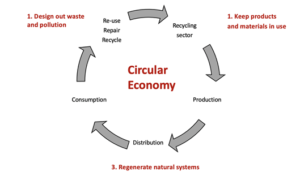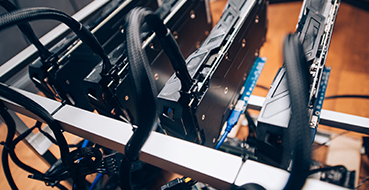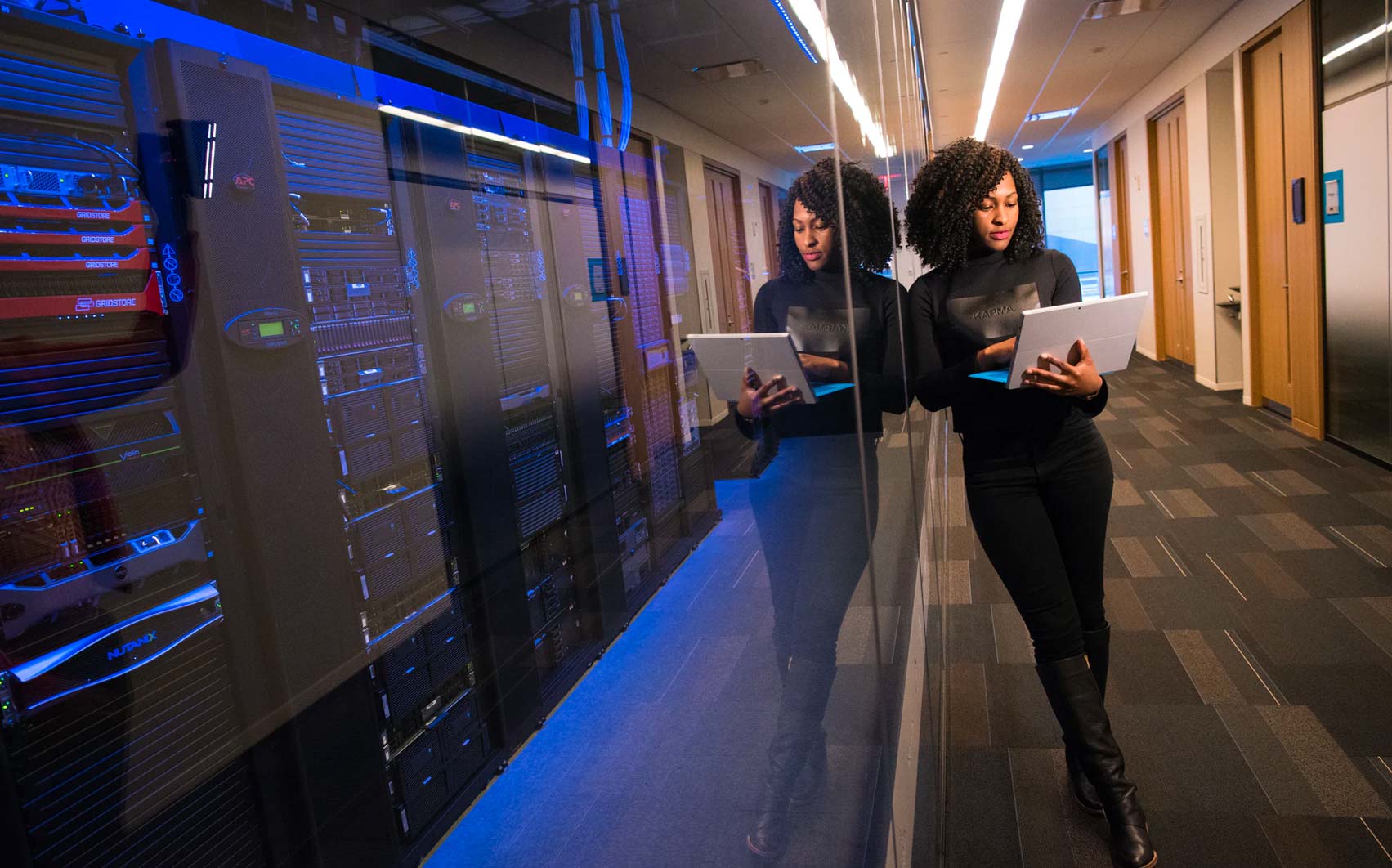
The over-exploitation of the natural resources required to achieve economic growth is having an extremely negative affect on our natural environment. In order to achieve economic growth, the linear economy (Take – Make – Dispose) has driven value by producing and selling as many products as possible at a vast rate. The finite resources that are required are becoming scarce and more expensive; not just for businesses, but for everyone. According to the World Bank report “What a Waste 2.0: A global Snapshot of Solid Waste Management to 2050”, global waste is predicted to grow by 70% by 2050 unless drastic action is taken. This has led to the development of the circular economy.
What is the circular economy?
The circle economy is much more than just recycling, it is a systematic approach to eliminate waste all together. The approach is founded upon three main principles: to design out waste and pollution; keep products and materials in use and regenerate natural systems. It is the opposite of the linear economy, as it keeps resources in use for as long as possible, ensuring maximum value whilst in use and then recovering and regenerating products or materials and the end of its life. Since the industrial revolution, the rapid pace of technological progress has continued, resulting in people and businesses having access to products from all over the world at affordable prices. The circular economy aims to change this process.

How do we contribute towards this?
TPM (third party maintenance) companies are be able to support the repositioning to a circular economy in the service-oriented technology sector. In an ideal IT world, new technology is designed & manufactured, consumers then use the hardware and at end of life the equipment is recovered, repaired or refurbished to enable its reuse. Eventually, the equipment is recycled back to the manufacturer.
Importantly, micro and small organisations can play a fundamental role if provided with macro-level support to overcome company-level barriers. We can play an influential role in the shift towards circular economy due to our strategic position between manufacturers and end-users.
There are many benefits of using this circular economy theory that we can provide:
- Extended life-cycle of IT Infrastructure;
- Cost effective and maximises return on investment;
- Reduces carbon footprint & waste electronics to landfill; and
- Environmentally friendly adding Corporate green credentials.
Through sweating assets that little bit longer, less resources are being used in the making of new equipment, which is more sustainable and kinder to the environment. We can continue to support equipment for as long as spare parts are available. We offer programmes to help you recycle and reuse equipment.
Sustainability that matters, at Data-Shield we design our support solutions with the environment in mind. It starts with us maintaining devices that are deemed EOSL by the manufacturer, this way they can be utilised for longer, so fewer raw materials and less energy is needed to produce and distribute new devices to the market. We also offer services, solutions and programmes that help reduce the environmental impact, we provide responsible methods to reuse or recycle your devices.
Get in touch today to find out how we can help you join this transition and save money at the same time!



